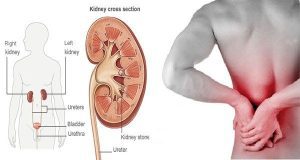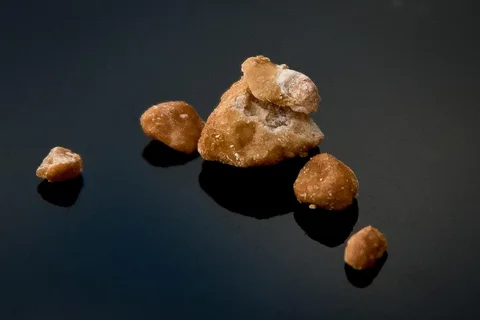Understanding Kidney Stones
Kidney stones are small, hard deposits that form in the kidneys and can cause excruciating pain when they pass through the urinary tract. They are primarily made of calcium oxalate, but can also consist of other substances like uric acid or struvite. These stones vary in size, ranging from as small as a grain of sand to as large as a golf ball. While some kidney stones may pass out of the body without medical intervention, others may require medical attention.
Factors Influencing Passage Without Medical Intervention
Size Matters
The size of the kidney stone plays a crucial role in determining whether it can pass without medical intervention. Smaller stones, typically those less than 4 millimeters in diameter, have a higher chance of passing spontaneously. Larger stones may get stuck in the urinary tract, leading to severe pain and requiring medical intervention for removal.
Composition of the Stone
The composition of the kidney stone also affects its likelihood of passing without medical intervention. Stones made of certain substances, such as uric acid, may have a higher chance of spontaneous passage compared to calcium-based stones. Additionally, the shape and texture of the stone can impact its ability to move through the urinary tract.
Location within the Urinary Tract
Where the kidney stone is located within the urinary tract can determine whether it can pass without medical intervention. Stones located closer to the bladder have a better chance of passing spontaneously, as the urinary tract widens closer to the bladder, allowing for easier passage. However, stones located higher up in the urinary tract may require medical intervention due to narrower passages. Explore More About (Age vision Disorder)

Symptoms of Passing Kidney Stones
Passing kidney stones can be a painful experience accompanied by various symptoms. These symptoms may include:
- Sharp Pain: Patients often experience intense, stabbing pain in the back or side as the stone moves through the urinary tract.
- Blood in Urine: Hematuria, or blood in the urine, is a common symptom of passing kidney stones.
- Urinary Urgency: Patients may feel a frequent urge to urinate or experience burning sensations during urination.
- Nausea and Vomiting: Some individuals may experience nausea and vomiting as a result of the pain and discomfort caused by passing kidney stones.
- Difficulty Urinating: The presence of a kidney stone can obstruct the flow of urine, leading to difficulty in urination.
Treatment Options for Kidney Stones
While some kidney stones may pass without medical intervention, others may require treatment to alleviate symptoms and prevent complications. Treatment options for kidney stones include:
Watchful Waiting
In cases where the kidney stone is small and unlikely to cause complications, doctors may recommend a period of watchful waiting. During this time, patients are advised to drink plenty of water and take pain medication to manage symptoms while waiting for the stone to pass naturally.
Medications
Certain medications, such as alpha blockers or pain relievers, may be prescribed to help relax the muscles in the urinary tract and alleviate pain during the passage of kidney stones. Additionally, medications may be prescribed to help dissolve specific types of kidney stones.
Medical Procedures
If a kidney stone is too large to pass spontaneously or is causing severe symptoms, medical intervention may be necessary. Common medical procedures for treating kidney stones include:
- Extracorporeal Shock Wave Lithotripsy (ESWL): This non-invasive procedure uses shock waves to break up kidney stones into smaller pieces, making them easier to pass.
- Ureteroscopy: A thin, flexible scope is inserted into the urinary tract to locate and remove the kidney stone directly.
- Percutaneous Nephrolithotomy (PCNL): In this procedure, a small incision is made in the back to access the kidney and remove the stone.
Surgical Intervention
In rare cases where other treatments are ineffective or not feasible, surgical removal of the kidney stone may be necessary. Surgical procedures, such as nephrolithotomy or ureterolithotomy, involve making incisions to directly remove the stone from the kidney or urinary tract.

Treatment Options for Kidney Stones
| Treatment Option | Description |
|---|---|
| Watchful Waiting | Period of observation with pain management, allowing the stone to pass naturally. |
| Medications | Prescription of drugs to alleviate pain, relax muscles, or dissolve specific types of kidney stones. |
| Medical Procedures | Non-invasive or minimally invasive procedures to break up or remove kidney stones, such as ESWL, ureteroscopy, or PCNL. |
| Surgical Intervention | Invasive surgical procedures for direct removal of kidney stones when other treatments are ineffective or not feasible. |
Conclusion
While some kidney stones may pass without medical intervention, the likelihood of spontaneous passage depends on various factors such as the size, composition, and location of the stone. Patients experiencing symptoms of kidney stones should seek medical attention for proper diagnosis and treatment. Early intervention can help alleviate symptoms, prevent complications, and improve overall quality of life.
For more information on kidney stones and treatment options, consult a healthcare professional.












